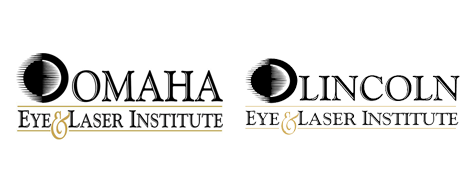Do you have cataracts? Are they making it difficult to see and live your life?
Cataract surgery is the only effective treatment for cataracts. Because cataracts are so prevalent, affecting nearly half of all adults by age 75, cataract surgery is the country’s most commonly performed medical procedure.
Millions of people undergo cataract surgery every year. While no surgery is truly routine, a practiced cataract surgeon can perform the procedure safely and effectively.
At Omaha Eye & Laser Institute, you can rest assured that our surgeons are experienced and will give you the best experience possible. The procedure is simple and very low-risk. You can minimize that risk further by following all instructions for proper post-operative care.
Not only is there nothing to fear when it comes to cataract surgery, but there’s also something to look forward to, which is a life without cataracts. Keep reading to find out what you can expect when you have cataract surgery!
What are Cataracts?

Cataracts occur when the natural lens in the eye becomes clouded. They usually occur as part of the aging process.
Although there are other reasons you could develop cataracts, they are less common. Most people start developing cataracts in their forties or fifties.
You may not even realize you have them at first, as they can take many years to mature. If you have cataracts, you may experience the following symptoms:
- Blurry vision
- Glare and halos
- Light sensitivity
- Poor night vision
- Difficulty seeing contrast
If you experience these symptoms, see an eye doctor. You should also have regular eye exams once you turn 40. At this age, most eye doctors recommend having an eye exam at least once every two years.
By having regular exams, your eye doctor can spot and diagnose your cataracts in the early stages, allowing them to monitor their development.
Cataract Surgery
Cataract surgery is the only way to treat cataracts. The procedure removes your cataracts by taking out the natural lens where they formed.
To see clearly, you need a lens in your eye. When you have the natural lens taken out, it’s replaced with an artificial lens, called an intraocular lens (IOL).
The IOL takes over the job that the natural lens can no longer perform, allowing you to see clearly once more. IOLs come in different varieties, with some helping you see even better than you could before you developed cataracts by correcting presbyopia, another common age-related eye condition.
When you’re diagnosed with cataracts, you may not have to get surgery right away. Cataracts can develop slowly, often taking years to cause significant visual problems.

Most cataract surgeons recommend having cataract surgery when cataracts make it impossible to complete day-to-day tasks. If you can no longer safely cook dinner, clean the house, or use the stairs in your home, it may be time to consider cataract surgery.
Injuring yourself due to impaired vision is a good reason to think about cataract surgery. The sooner you have it, the sooner you can regain your autonomy and independence.
The Procedure
When you have cataract surgery, you’ll be able to go home the same day, as it’s an outpatient procedure. If you have cataracts in both eyes, you’ll only have one cataract removed at a time.
Your cataract surgeon will wait until your first eye finishes healing before taking out the second one. Before the procedure, you’ll receive numbing eye drops so you won’t feel any pain.
You will remain awake, but if you’re nervous, you may be given a mild sedative to help you relax. After the numbing eye drops spread over the surface of your eye, your cataract surgeon makes a tiny incision into the eye to access the lens.
Then they use a small instrument to break apart the lens in your eye and a small vacuum-like device to remove the broken pieces. After removing all remaining lens pieces, they fold up the IOL and insert it through the same incision where it’s unfolded and positioned.
There’s no need for stitches since the incision is small enough to heal on its own. Once you spend an hour or so in a recovery room, you’ll be able to go home. You won’t be able to drive yourself home, so make sure you have a friend or family member with you.
Recovery

Recovery from cataract surgery is relatively quick and painless. You’ll want to spend the day you get home from your procedure relaxing.
You may experience some discomfort as the numbing eye drops wear off, but you can treat this with mild, over-the-counter painkillers. Any feelings of discomfort usually go away within a few days.
When recovering, the most important thing you can do is treat your eyes correctly. To start, this means taking prescribed eye drops as directed.
These prescriptions include antibiotics that keep your eye from becoming infected. Taking medications as prescribed can keep you from experiencing any complications from surgery, so be diligent about keeping track of your doses.
Besides that, make sure you keep your eyes clean. You may be given an eye shield to wear at night.
During the day, avoid getting anything near your eyes, including eye makeup, dust, chemicals, and even water. It may be easier to take a bath for the first few weeks after having cataract surgery.
You can take a shower as long as you keep the head pointed down and away from your face. You also should avoid strenuous activity and heavy lifting, although you can still do light exercise. Also, avoid pools or hot tubs as chlorine can be detrimental to your eyes while they’re healing.
Before you have cataract surgery, your eye doctor will give you specific instructions on everything you should do and avoid. As long as you follow their instructions, it’s much more likely you’ll have a successful cataract surgery and recovery.
Are you ready to find out if you need to have cataract surgery? Schedule your cataract consultation at Omaha Eye & Laser Institute in Omaha, NE, today!





